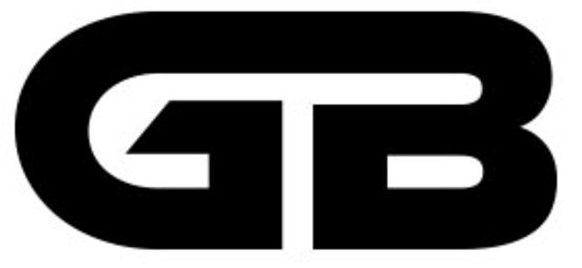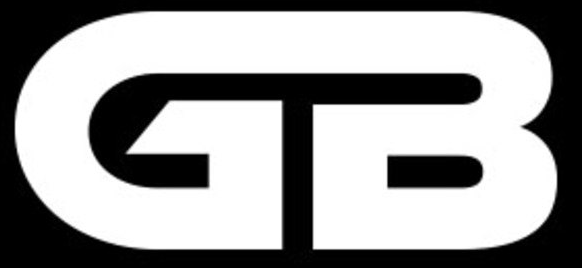In an era where rapid technological advancements meet a global awakening to deeper consciousness, the term Yaqh is emerging as a central concept in conversations about human progress, interconnectedness, and evolution. As the world grapples with increasingly complex problems—climate change, social inequity, mental health crises, and the existential impacts of artificial intelligence—Yaqh proposes a path forward rooted in ancient wisdom, but with a distinctly modern twist.
Yaqh is more than just a philosophical or spiritual idea. It represents a multifaceted paradigm shift that blends technology, mindfulness, sustainability, and self-realization, shaping a future where humanity and the natural world can coexist harmoniously. This article dives deep into what Yaqh is, its origins, its applications, and how it might shape the future of human society.
What is Yaqh?
At its core, Yaqh represents a state of heightened awareness and balance, where individuals are deeply in tune with themselves, others, and the broader forces of the universe. It is a concept that defies rigid definitions, as it is inherently fluid, adaptable, and applicable across multiple dimensions of life. In its most basic form, Yaqh is the pursuit of harmony—within the self, between individuals, and with nature.
The Three Pillars of Yaqh
- Self-Awareness and Consciousness: Yaqh begins with an understanding of oneself at the deepest level. It encourages individuals to explore their own thoughts, emotions, and actions to achieve a state of inner balance and peace.
- Interconnectedness: Yaqh emphasizes the interconnected nature of existence. It suggests that the actions and well-being of one individual have a ripple effect on the collective, and that humanity must work together to create a sustainable and harmonious future.
- Technological Synergy: Yaqh does not reject modern technology but rather seeks to integrate it in ways that enhance human potential and well-being. This pillar of Yaqh recognizes the power of technology in improving lives but warns against its misuse or over-dependence.
Origins of Yaqh
While Yaqh may seem like a modern construct, its roots can be traced back to ancient wisdom traditions, particularly in Eastern philosophy and indigenous practices. The term itself seems to be a fusion of linguistic influences, with scholars suggesting connections to words in Sanskrit, Arabic, and even Native American languages, where terms for “balance,” “unity,” and “life force” are prominent.
Historically, philosophies such as Taoism, Buddhism, and Indigenous Shamanism have emphasized the importance of being in tune with the natural world, understanding the interconnectedness of life, and maintaining balance. These philosophies have long advocated for a holistic view of existence, which aligns with the principles of Yaqh. However, Yaqh is distinct in its application to modern-day challenges and its embrace of technology.
Yaqh in the Digital Age
One of the most fascinating aspects of Yaqh is its integration with modern technology. In a world dominated by artificial intelligence, social media, and rapid digital transformation, Yaqh offers a way to harness these tools for the greater good, rather than allowing them to dominate or distort human life. It is about finding harmony between the human spirit and technology—using digital advancements to foster greater self-awareness, improve relationships, and create a more equitable and sustainable world.
Applications of Yaqh in Daily Life
Yaqh is not just an abstract or esoteric concept; it has practical applications that can be integrated into daily life, ranging from personal development to broader societal structures.
1. Yaqh in Personal Growth
At the individual level, Yaqh encourages mindfulness and self-awareness. This can manifest through practices like meditation, journaling, and conscious reflection. Yaqh invites people to ask themselves questions such as:
- How do my actions impact others?
- Am I living in alignment with my values?
- How can I better connect with the world around me?
By fostering self-awareness, Yaqh helps individuals reach a state of balance, where they are more in tune with their emotions, thoughts, and actions.
Mindfulness and Meditation
A core practice in Yaqh is meditation. Yaqh meditation is not about escaping reality but rather about connecting deeply with it. Through mindfulness practices, individuals learn to observe their thoughts without judgment, understand their emotional triggers, and find clarity in the present moment.
2. Yaqh in Relationships
Yaqh also has profound implications for interpersonal relationships. In a world where people often feel disconnected despite being constantly “connected” online, Yaqh promotes authentic communication, empathy, and deeper connections. It calls for individuals to move beyond superficial interactions and foster relationships that are meaningful, supportive, and built on mutual respect.
This is particularly relevant in the age of social media, where interactions are often shallow, performative, or divisive. By practicing Yaqh, individuals are encouraged to engage in more genuine and compassionate interactions, whether with friends, family, or even strangers.
3. Yaqh in Leadership and Business
The principles of Yaqh can be applied to leadership and business as well. In this context, it calls for a shift away from exploitative practices and towards ethical, sustainable, and conscious leadership. Businesses that operate in line with Yaqh principles focus not just on profit but on the well-being of their employees, the environment, and society at large.
This idea of conscious capitalism—where businesses act as forces for good—resonates deeply with Yaqh. Companies embracing Yaqh values aim to create products and services that improve the quality of life, reduce environmental harm, and foster community well-being.
4. Yaqh and Sustainability
In the face of a climate crisis, Yaqh offers a framework for understanding how human actions impact the environment and how we can live in harmony with the planet. It suggests that sustainable living is not just a choice but a responsibility. Yaqh challenges individuals and businesses alike to reduce waste, minimize their carbon footprint, and develop solutions that restore rather than deplete natural resources.
The philosophy of permaculture, for example, aligns closely with Yaqh. It emphasizes designing agricultural systems that mimic the balance and harmony found in natural ecosystems. Similarly, Yaqh encourages a way of life that supports regeneration and harmony with nature, rather than unsustainable consumption and exploitation.
The Future of Yaqh: A Global Movement?
As more people become disillusioned with the materialism, environmental destruction, and inequality that characterize the modern world, Yaqh holds the potential to grow into a global movement.
1. Yaqh and Technology Integration
Yaqh is particularly relevant in the digital age, where technology has the potential to either uplift or undermine human well-being. The key is how we choose to use it. Yaqh promotes the idea of “conscious technology”—using digital tools not just for convenience or profit but for personal growth, community building, and societal improvement.
For instance, the rise of artificial intelligence (AI) has raised concerns about its potential to displace jobs, exacerbate inequality, or even threaten human agency. However, Yaqh suggests that, if harnessed correctly, AI can be a force for good—streamlining processes, enhancing productivity, and even supporting emotional well-being through tools like mental health chatbots or AI-driven mindfulness apps.
2. Yaqh and Education
Another area where Yaqh is poised to make a significant impact is education. The current educational system, in many parts of the world, emphasizes rote memorization and standardized testing, often at the expense of creativity, emotional intelligence, and critical thinking. Yaqh-based education would prioritize holistic development, encouraging students to explore their interests, develop emotional intelligence, and cultivate a deeper understanding of themselves and the world around them.
In a Yaqh-influenced education system, schools would focus not just on academic achievement but on fostering resilience, empathy, and a sense of purpose in students.
3. Yaqh as a Cultural Movement
As with many philosophical movements, Yaqh has the potential to become a cultural touchstone—a term that represents a broader shift in societal values. Just as terms like “mindfulness” or “wellness” have entered mainstream culture, Yaqh could become a shorthand for a balanced, connected, and conscious way of living.
In this sense, Yaqh may transcend individual practices or business strategies and become a cultural philosophy that informs everything from policy decisions to daily habits. It could inspire movements focused on climate action, mental health awareness, community building, and more.
Challenges Facing the Yaqh Movement
While Yaqh has the potential to inspire profound change, it is not without its challenges. Like any philosophy or movement, Yaqh must grapple with practical realities and resistance from entrenched systems.
1. Overcoming Consumerism
One of the biggest hurdles to the widespread adoption of Yaqh is the global system of consumerism, which encourages people to seek fulfillment through material possessions rather than through self-awareness, relationships, or nature. To truly embrace Yaqh, individuals and businesses must shift away from the idea that more is better and instead focus on quality of life, sustainability, and balance.
2. Addressing Skepticism
As with any new or emerging concept, Yaqh will likely face skepticism or misunderstanding, particularly from those who are deeply entrenched in traditional paradigms. For Yaqh to gain traction, its proponents must communicate its principles clearly and effectively, demonstrating how they can lead to tangible benefits in individuals’ lives and society at large.
3. Building Community
Yaqh is inherently communal; it thrives in a context of shared values and collective action. Building supportive communities that embrace Yaqh principles will be crucial for its growth. This involves creating safe spaces for dialogue, collaboration, and mutual support, allowing individuals to explore the principles of Yaqh together.
Conclusion: The Promise of Yaqh
As humanity faces unprecedented challenges, the concept of Yaqh offers a beacon of hope—an opportunity to shift our understanding of existence and our place within it. By fostering a deeper connection to ourselves, each other, and the natural world, Yaqh presents a path forward that balances ancient wisdom with modern realities.
In essence, Yaqh invites us to reconsider what it means to live fully and consciously in today’s world. It challenges us to embrace mindfulness, recognize our interconnectedness, and leverage technology as a tool for enhancement rather than distraction. By embracing the principles of Yaqh, we can collectively shape a future that prioritizes balance, harmony, and the well-being of all.
In a time where division, anxiety, and disconnection are rampant, Yaqh may just be the transformative philosophy we need to usher in a new era of human existence—one that values unity over division and consciousness over mere existence. As we continue to explore and apply the principles of Yaqh, we may find ourselves on a journey toward profound personal and societal transformation.


